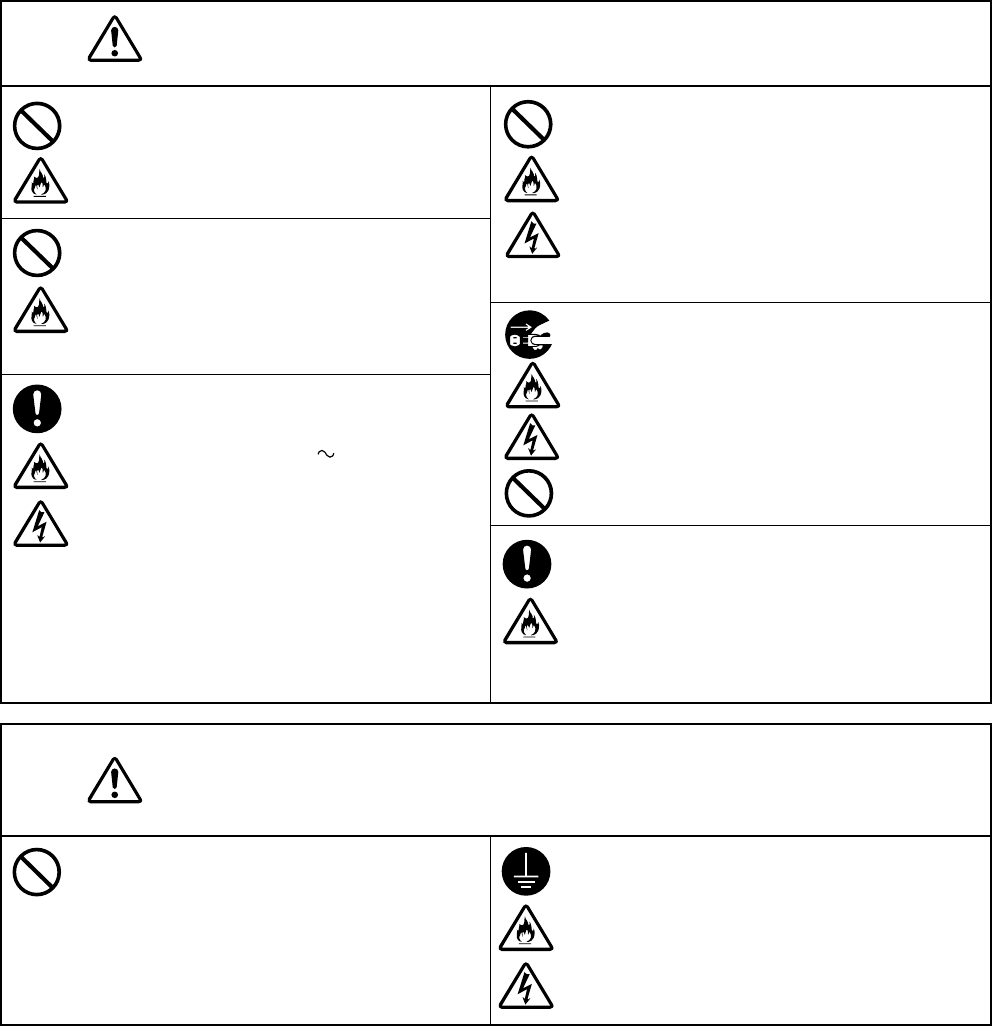
2424
• Do not bend, twist or pull the AC power cord
excessively.
• Do not place heavy items on the AC power cord
or scratch it.
• Do not modify the AC power cord.
Doing so may damage it, resulting in fire or elec-
tric shock.
When disconnecting the AC power cord’s plug, al-
ways hold the plug and pull it to remove it. Never
pull the AC power cord itself as it may be dam-
aged, resulting in fire or electric shock.
Also do not insert or disconnect the AC power cord’s
plug with wet hands. Doing so may cause electric
shock.
If you are not going to use the instrument for a long
time, disconnect the AC power cord from the AC
outlet. Dirt or water may accumulate on the prongs
of the AC power cord’s plug and it may cause a
fire. If there is any dirt or water on the prongs, it
must be removed.
Do not use the instrument in areas where flam-
mable or combustible gases (gasoline fumes etc.)
are present.
Doing so may result in a fire.
If dust has entered through the vents and collected
inside the instrument, do not use the instrument.
Doing so may result in a fire.
For periodic inspection, contact a Konica Minolta
authorized service facility.
Always use the AC power cord supplied as a stan-
dard accessory with the instrument, and connect
it to an AC outlet (100-240V , 50-60 Hz).
Connecting to a voltage other than that specified
may result in damage to the instrument, fire or
electric shock.
SAFETY WARNING
(Failure to adhere to the following points may re-
sult in death or serious injury.)
SAFETY PRECAUTIONS
(Failure to adhere to the following points
may result in injury or damage to the in-
strument or other property.)
• Do not place the instrument on an unstable or
sloping surface.
• When you carry the product, take care not to let
it drop.
Doing so may result in its dropping or overturn-
ing, causing injury.
Be sure to connect the AC power cord’s plug to an
AC outlet that has a protective grounding terminal.
Also make sure that peripheral devices (e.g. PC)
are connected to AC outlets that have a protective
grounding terminal. Failure to do so may result in
electric shocks.


















